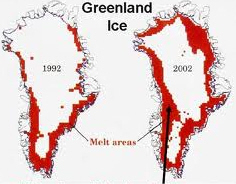



What will the world look like in 50 years?
We don't know, but it should be different from today. If we asked this question fifty years ago, it is likely we would have expected much more change - but today we have more of the same - old train systems, inefficient road systems, still no complete fibre-optic network, no alternative fuel strategies and dependence on old oil and gas power stations. Marks of of ten?
RT - Research Team
Peak Oil - This is not going to happen, as our research shows clearly that there are many other sources of oil and gas, (gas can be made into fuel oil), these are more expensive to extract and use, so we can expect the price to rise but oil products as such will not run out in the foreseeable future
Oil, Coal & Gas- These are all possible, and there are new technologies for obtaining gas from our coal reserves. However, none are completely clean even with new clean technologies. There are better uses for fossil fuels eg for production of necessary products such as fertilisers
Nuclear - Newest Power Plants - Now very safe, efficient and effectively limitless. Thorium can be used as a more efficient, safer fuel with much less radiactive waste. (see fact file) also: https://www.youtube.com/watch?v=xIDytUCRtTA http://energyfromthorium.com/ & http://thorconpower.com/
Wind & Tidal
- Limited, will not provide enough for our near future requirements
Tidal - Seven estuary - while this would provide significant energy it would be a one-off and therefore not useful as a major technical achievement that Britain can exploit elsewhere or for export trade. It is also localised and impacts on the Grid infrastructure nationwide. Costs and timescales are very significant
Biofuels - As an energy source, these don't solve anything, just substitutes one pain for another. When there are excellent global alternatives one wonders why they were ever considered for fuel production
Solar - Proven - costs reducing, clean, (see Fact File) distributed locally across the UK, has the ability to create H2 for Transport use and we are also developing new types of energy storage such as compressed/refrigerated air that can smooth out energy fluctuations of solar power very cheaply ...read on
Geothermal - This is a 'free', limitless & clean energy source (see Fact File) - but not a lot of use in the UK as the depth of drilling would be very deep and thus impossible or very expensive. A fabulous resource for many areas of the world, and Uk engineers could be helping to exploit it with transferable technologies from oil drilling & production (BP et al). If the world powers in the last fifty years had concentrated on developing this resource instead of plundering the oil reserves, we would not now be discussing global warming. CST - A cheap trick and look where it has got us... but hey, that's democracy and capitalism working together for our future!
Fusion - A potential future option, Producing energy from fusing hydrogen atoms together to to produce helium (just like a miniature sun). The ITER project in the south of France, has the best potential, supported by many countries it is a truly global quest. At least 30 years before it becomes a viable energy option.
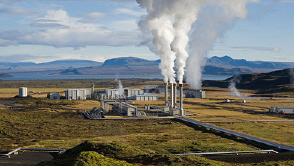
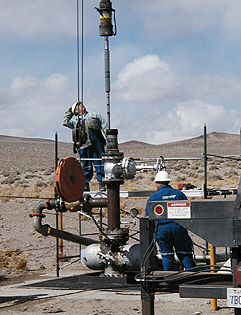
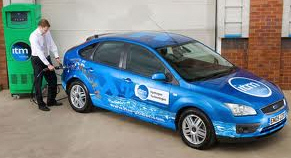
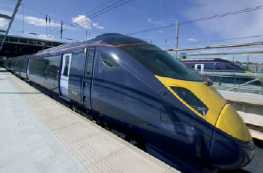
We know transport is a mess, suffering from 25 years of neglect and no long term strategy. So what are the realistic choices now?
RT - Research Team
Roads - Motorways span the UK - The issue is congestion. If we can find a way of reducing or even eliminating congestion, then the existing road network would work well in the future. Hydrogen powered vehicles are now available & in mass production.
Rail - The main problem with the rail network is that it has limited capacity. New high speed lines and electrification could significantly improve the capacity and carbon emissions.
Air - Internally within the UK this is not particularly viable (except perhaps from London to Scotland) due to the time of traveling to airport, embarking and traveling to destination. International travel is likely to stay as it is due to limited opportunities of change either technically or practically.
Consider the benefits of a 25 year plan for the UK in moving wholesale to H2 based road system linked to an advanced electric rail network to enhanced intercity travel. This would use Nuclear (Thorium based) power stations and solar energy systems.
The UK would become the centre for research and development in H2 and clean energy - distribution systems, vehicles, fuel cells & production methods.
This create the right sort of jobs, not just in research but in engineering, assembly, production & infrastructure implementation.
It would also provide the UK with a lead in these technologies and enable our businesses to increase export in key high tech areas of the economy (see selling & marketing UK plc).
It may even prompt an increase in vehicle manufacturing, (for say small 'Citycars' licensed by local authorities for city rental use)
This could, over the course of 60 years, pay for itself with the savings made from cheaper running costs and maintenance outweighing the initial investment to electrify the route.
The proposed high speed lines could potentially more than treble the total rail capacity on Britain’s most congested transport corridors.

CST takes a different view of climate change and believes we are looking through the wrong end of the telescope. Here’s why.
First of all, we know that we have changed and continue to change (at an increasing rate) the amount of carbon dioxide and other greenhouse gases in the atmosphere. With 6.7 billion people today, having risen from 1.9 billion in 1900, it would be surprising if man had not made a significant impact on the earth’s atmosphere since the industrial revolution.
The real discussion is what we should do now, today. If we expect, somehow magically, that Brazil, Russia India and China (BRIC’s) are going to curtail their new found economic (& political) power in favour of the world’s climate, we are going to be disappointed. The recent UN Cancun convention demonstrated quite clearly that the world will not change course until it is forced to.
So, whatever we do in the UK, we simply cannot have any serious direct impact on the amount of carbon entering the atmosphere. If you are still not convinced about this then consider the fact that even within China alone, at today’s production levels, if the UK managed zero emissions then China would take less than one month to negate our efforts. In ten years time the BRIC’s would manage this in just a few days, and with China today creating three or four new 500 megawatt coal-powerplants a week we can only be bystanders.
CST also believes that whatever the world tries to do in the next tens of years, (given the continuing rise of the BRIC’s), we shall be long past any threshold and attempting now to rein-back the current carbon dioxide production will not make a jot of difference to this outcome. The ‘Green’ bandwagon is, for the most part, a complete waste of time and resources. It’s usually based on poor science and has become fashionable. So the ‘environmentalists’ run around telling us that we must save energy and change our lifestyles. This is absolute nonsense. As we have already clearly demonstrated, it makes no practical difference to the planet what we do in Britain. The ‘greens’ will say 'but you have to take a lead' – and CST agrees entirely! But the way to take the lead is by implementing the reforms in energy, governance, education, welfare and transport that CST puts forward.
Take energy reform – moving the UK to Nuclear and Solar with enough excess energy to provide Hydrogen for all vehicles within 25 years – is a plan based on commonsense to provide the UK’s long term future needs for sustainable, efficient energy production and a modern transportation system. Being sustainable also means it is not based on fossil fuels and so produces no greenhouse gases whatsoever. CST agrees that we should lead the world by providing not just an example, but by developing new technologies to sell to the rest of the world to help them move in the same level-headed direction.
An example of this ‘green bandwagon’ and poor science is the amount of effort, money and resources going into creating low energy products for the UK. The science tells us that within the UK during many months of the year, every household, (and many businesses), use energy for heating their buildings. Light bulbs, computers, televisions use energy, but ALL of this energy ends up as heat within the home or office and simply offsets the amount required from the heating system. The parents who nag their children to turn off the lights during winter months should have paid more attention during their physics lessons. If you then factor-in the additional production for these special products the saving in total carbon production is very small – so why don’t we turn our attention to really useful reform instead?
Another seriously ignored fact by the proponents of the ‘change your lifestyle’ bandwagon is that reducing methane production has a massively greater effect, in the ‘short’ term, to help reduce the greenhouse effect, (compared to reducing a similar volume of carbon dioxide). So what we probably need are some cheap corks for the many cows in our fields rather than new light bulbs that don’t produce enough light in which to safely cut the joint.
CST is well aware of climate change issues, for instance, take the well researched movement of ice sheets in Greenland. We know that these are adding 300 gigatonnes of new fresh water to the oceans each year. This accounts for about 25% of the global rise in sea levels every year. In 2010 a gigantic slab of ice broke off the ‘Petermann Glacier’ and it retreated 15km – leaving it further inland than it has been since records began. The current thinking is that Greenland’s ice will reach a ‘point of no return’ in just 30 years time – this means that whatever is done after that we shall not be able to prevent massive ice loss and probable increase in sea levels of up to 7m. And what does this mean for the Gulf Stream, (fresh water may turn the Gulf Stream off), – from which we get 30% of our warmth?
This is not to say CST is pessimistic. The human race is remarkable, we have survived ice ages by adapting and with the application of technology we shall again find a way to solve the problems of our own making. Jumping up and down, at the present moment, will not achieve anything, in fact it is likely to make matters worse by redirecting funds and resources from investment that has more useful long-term results.
The key to many of the world’s looming issues (climate change, water, food production etc) is plentiful, efficient, non-polluting, sustainable energy. Energy can be used to sequest carbon dioxide from the atmosphere, energy can produce clean water from seawater and pump it across the world and in future it will be used to produce food. The world does not have enough clean energy, nor will it have unless it seriously invests in either Nuclear, Solar or Geothermal, (and possibly in future, Fusion technology, see Energy Choices above). This sustainable energy is already there for the taking.
As and when, the BRIC countries begin to approach the West’s earnings per head of population, the world shall have no reason for not investing fully in these energy sources providing plentiful energy right across the planet. This will be the time to apply technology to the clean-up. In the mean time, let Britain show the way and help improve technological innovation for the production of clean energy, improved transportation along with a sustainable economic model for the world to follow, this is likley to have a little bit more impact than changing the light bulbs. - CST
